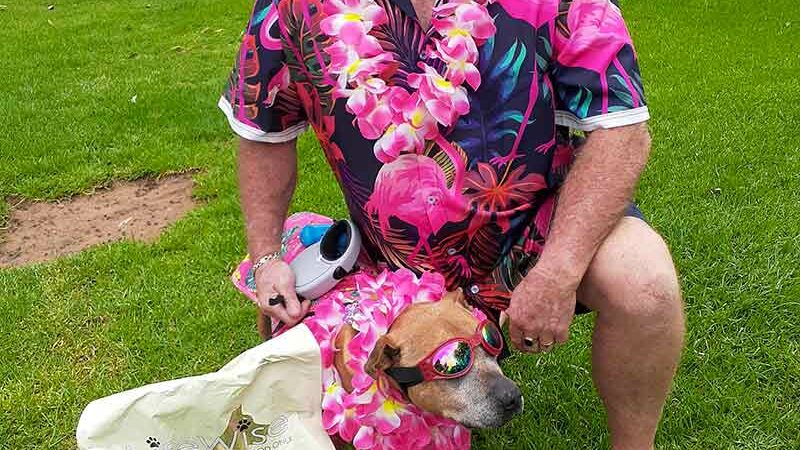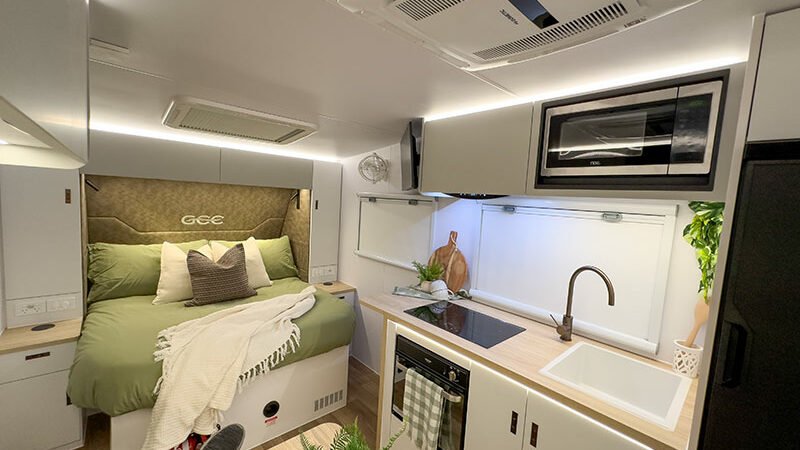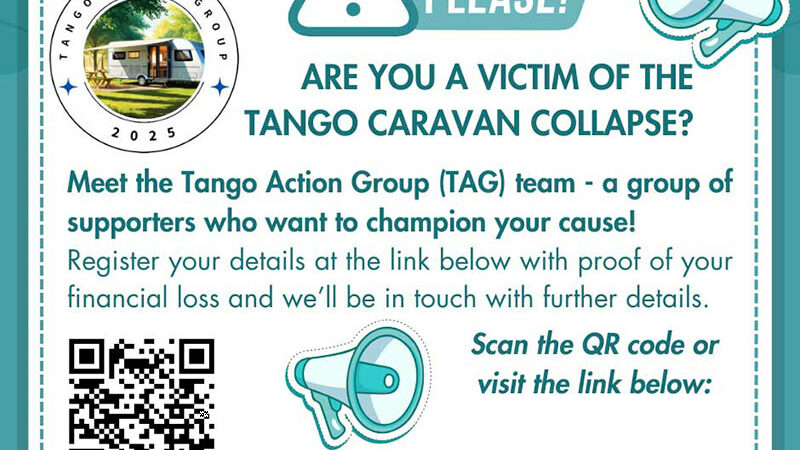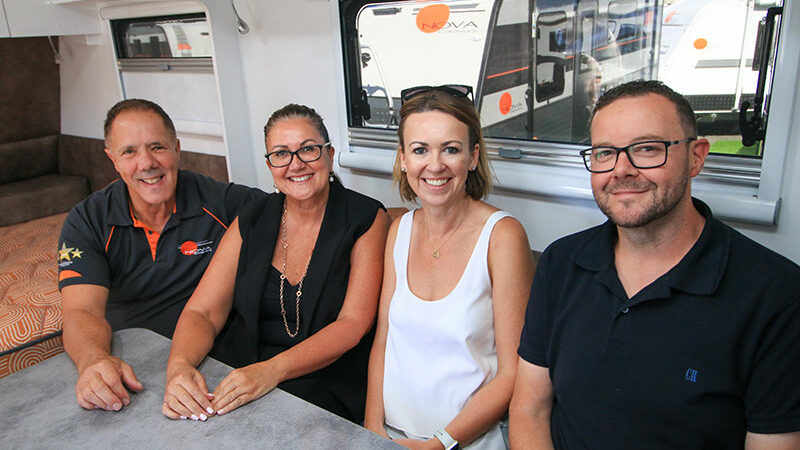ACCC Caravan Industry Concern
The Caravan Industry Association of Australia has said that it supports a “collaborative approach with the ACCC” in the wake of a new report that found “key issues of concern” within the RV industry.
However, the Caravan and Camping Industry Association has also cautioned that the report, which was based on a survey of 2270 owners of new caravans, was not truly representative of the industry.
The report, titled New Caravan Retailing: Ensuring Industry Compliance with the Australian Consumer Law, was released in late July.
According to the report, 80 per cent of survey respondents reported failures with their new caravan.
“If a business sells a consumer a caravan that fails to meet one or more of the consumer guarantees, the consumer is entitled to a remedy,” the report says. “Unfortunately, many consumers reported they were unable to obtain remedies, or the remedies did not fully address the failures.

“The ACCC is concerned that many consumers alleged suppliers had made misrepresentations to them about their new caravans and their consumer guarantee rights. It is a breach of the ACL (Australian Consumer Law) for a business to make statements to their customers that are incorrect or likely to create a false impression.”
The caravan’s performance capabilities, towing weight and the availability of repairs were among the “misrepresentations” highlighted by the report.
SURVEY METHODOLOGY
In November 2021, the ACCC published two surveys to better understand consumer and supplier experiences in the caravan industry. The surveys were open for four weeks and closed in December 2021.
The surveys were limited to new caravans purchased in the previous 24 months. The ACCC used this timeframe “because we wanted to understand issues currently affecting consumers and suppliers”.
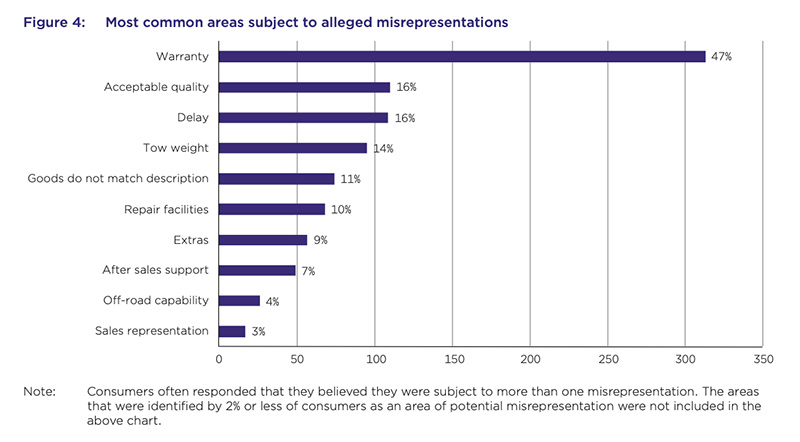
A total of 2699 responses were received from the public, 2270 of which related to new caravans purchased within the relevant period. The enforcement body also received 67 responses from suppliers, including manufacturers who also sell directly to the public.
The ACCC released a second targeted survey in early 2022, seeking further details from respondents about the brand and model of caravan they had purchased.
“This additional information will assist the ACCC in identifying any manufacturers and suppliers who may be engaging in systemic non-compliance with the Australian Consumer Law.”
The ACCC conducted additional interviews with individual suppliers (some of whom were also manufacturers) and met with industry representatives.
“We also presented initial findings about how suppliers and manufacturers could improve compliance with the ACL at caravan industry conferences and forums,” the report says.
However, the report also recognises the limitations of the data it collected, highlighting that caravan purchases who had a negative experience were more likely to respond to the survey or contact the ACCC, and that the number of survey respondents was low as an overall proportion of caravans registered in Australia (over 700,000).
WAKE-UP CALL
Stuart Lamont, the CEO of the Caravan and Camping Industry Association, said the industry viewed the report as a “wake-up call” in a challenging economic environment, including supply chains that had been affected by covid.
“This is a timely reminder of the Australian Consumer Law obligations for everyone in the industry,” he said.
“The ACCC has done a survey and identified some issues. The vast majority of people (manufacturers) know what their ACL obligations are and, during an incredibly difficult time, do their best to honour them and satisfy consumers. And where individual businesses do fall short, we welcome the additional education and guidance from the ACCC.”
Mr Lamont acknowledged that some parts of the RV manufacturing industry had become “caught up in volume” in the post-covid-lockdown environment as manufacturers tried to keep pace with demand, and that this may have caused some issues in terms of ACL compliance.
“However, we want our consumer expectations to be met,” he said. “Buying a new caravan is a highly emotional and financial purchase, one that is highly valued and aspirational. As a result of that, we want people to have an extraordinary time and, in isolated cases, we as an industry are pulling up short and we need to be better.”
DELIVERY DELAYS
According to the report, delays in delivery of a new caravan was a common theme among survey respondents, as was waiting on parts to fix failures with an exisiting caravan.
However, the report also acknowledged covid supply chain disruptions and the increased demand, which in some cases pushed the waiting time for a new caravan to 12 months or more.
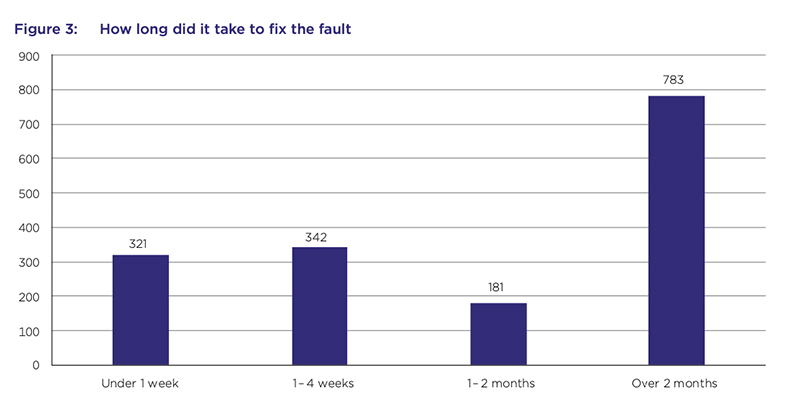
“To avoid misleading consumers, suppliers should be upfront at the point of sale about the timeframe for delivery and any potential for that timeframe to change; promptly inform their customers following receipt of any information about changes to that timeframe; and ensure that these explanations are accurate,” the report advises.
“There are some supply chain challenges as well as unprecedented demand being experienced at the moment,” Mr Lamont said. “This is a worldwide problem not peculiar to our industry, and while the industry is doing its best to meet consumer demand, we are experiencing a perfect storm at present.”
Another issue raised by the report: the difficulty some suppliers to RV manufacturers were having in obtaining reimbursement from manufacturers for the costs of providing a customer with a certain remedy.
This includes referring a supplier to a component manufacturer, only providing reimbursement for parts and not labour in some instances, and outright refusing reimbursement.
“We are concerned that the conduct of some manufacturers may make suppliers more reluctant to provide consumers with remedies, even though this is a supplier’s legal obligation under the ACL regardless of whether the manufacturer indemnifies them,” the report says.
COMPLAINTS TO ACCC INCREASING
The ACCC has received an increasing number of complaints about caravans, campervans and camper trailers since 2017. In 2017, 260 complaints were received, while 448 were received in 2021. Complaints about caravans made up the bulk of the numbers.
“In response to this trend, the ACCC has made industry compliance with consumer guarantees regarding high value items, including caravans, a compliance and enforcement priority for 2022–23, as it was in 2021–22,” the report says.
Mr Lamont, however, pointed out that about that 25,000 RVs were built in Australia each year, with another 70,000 imported from overseas.
“While we don’t want to see any complaints about our products, as a percentage of overall RVs built, those numbers are quite low,” Mr Lamont said.
“Over a five-year period, the ACCC received 1300 complaints but when you look at the total of up to 190,000 RVs built locally or imported, it’s a very small percentage.
“No doubt we need to take heed of the ACCC identifying some issues, and we support the report as an incredibly useful document to remind manufacturers of what their obligations are under the ACL. We look forward to working the ACCC about how as an industry we can be even better when we pull up short.”
The Australian RV industry has had to respond to a complex, rapidly changing landscape in recent years, as acknowledged by the ACCC report.
Bushfires in Australia and covid lockdowns in China (which is the primary source of imported RVs) lead to a 25 per cent decrease in imports in the first half of 2020.
Meanwhile, domestic manufacturing struggled to match 2019 production levels in Victoria, where 90 per cent of manufacturing occurs.
Then, in late 2020, international border closures, eased domestic travel restrictions and even government stimulus packages, created unprecedented public demand for new RVs, which in turn put greater pressure on already-stressed supply chains.
The RV industry, Mr Lamont said, was also experiencing a shortfall of people qualified to repair vans. “Caravans are hand-made, constructed of many thousands of pieces, and then subjected to some of the harshest terrain on the planet,” he said. “It’s unreasonable to expect that there won’t be problems from time to time. But the issue isn’t if something happens, it’s what happens when it does.”
The lack of service and repair networks around the country by some smaller manufacturers and importers was bound to contribute to the issues outlined in the report, Mr Lamont said.
The post ACCC Caravan Industry Concern appeared first on GoRV.
Source: https://www.gorv.com.au/accc-caravan-industry-concern/



